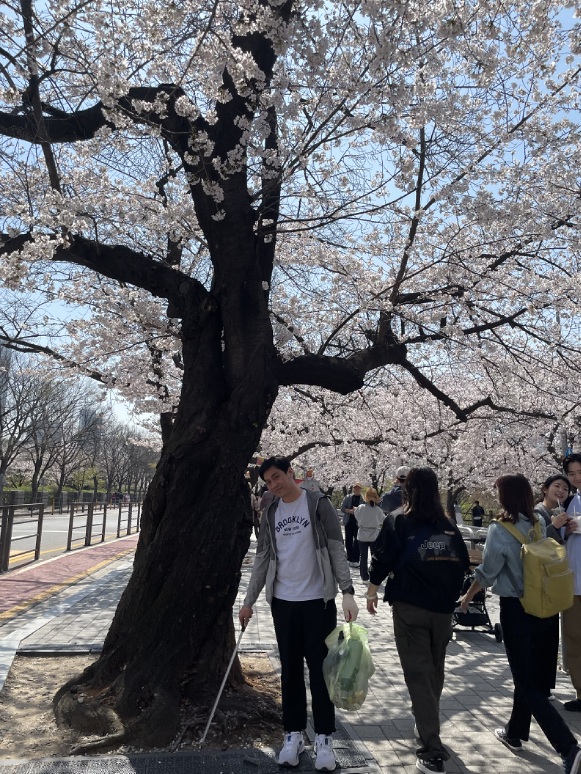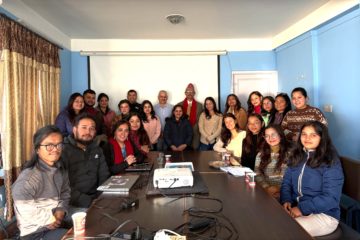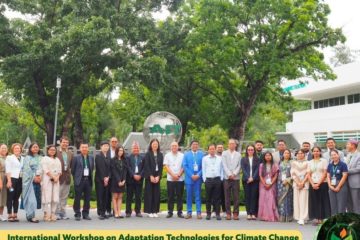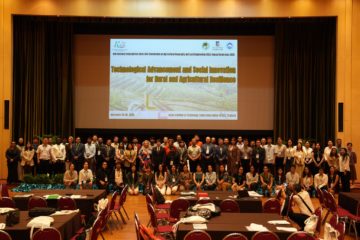Exploring Beyond Borders: My Exchange Journey at Seoul National University
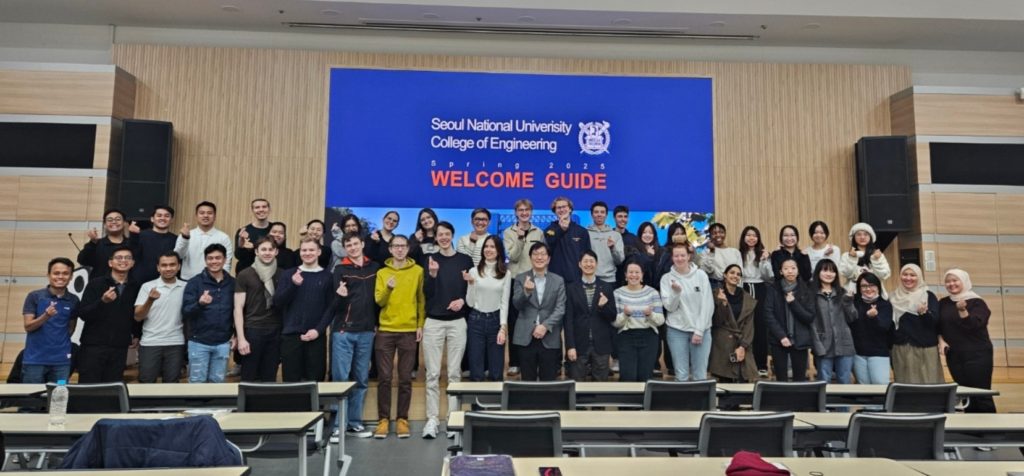
23 July, 2025: I am Jeerasak Meekaew, a doctoral scholar in the Development and Sustainability (DS) academic program at the School of Environment, Resources and Development (SERD), Asian Institute of Technology (AIT). From February to June 2025, I had the privilege of joining an exchange program at Seoul National University (SNU).
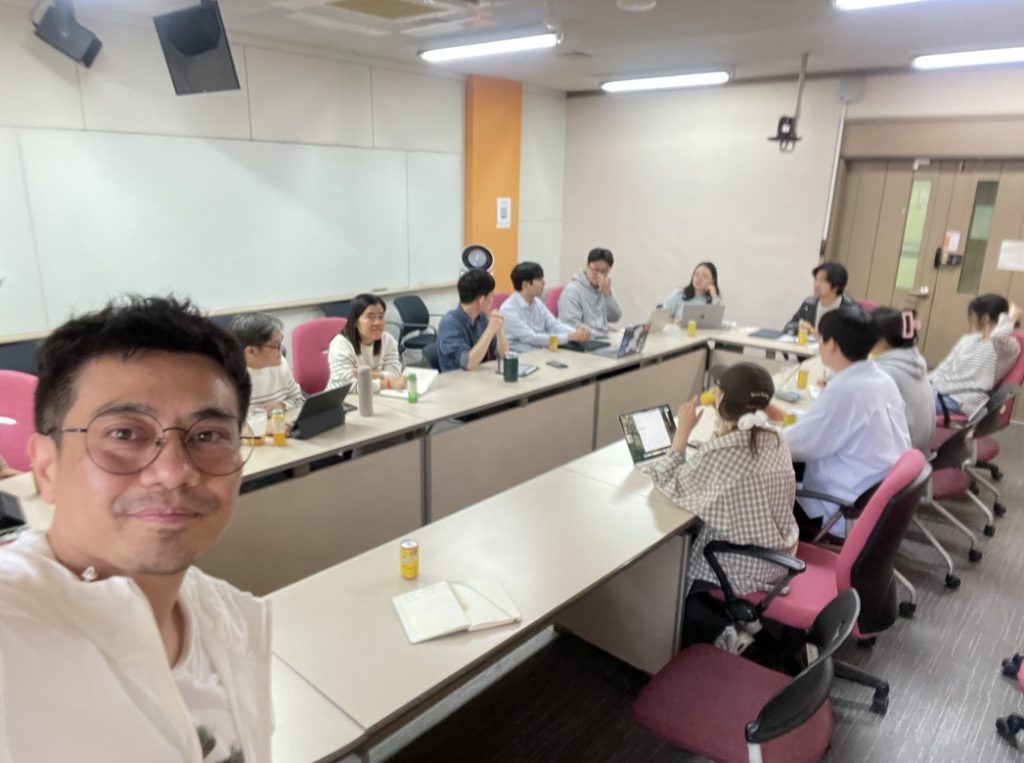
During this time, I enrolled as a graduate student in the College of Engineering’s Interdisciplinary Program in Technology Management, Economics, and Policy. The experience was not only academically enriching but also personally fulfilling—broadening my worldview, deepening my research insights, and offering meaningful cultural connections.
I am especially grateful to my advisor, Dr. Takuji W. Tsusaka, for encouraging me to explore opportunities beyond AIT. Studying at one of Asia’s most prestigious universities was an honor, and living in Seoul brought countless memorable moments—from collaborative projects and inspiring lectures to navigating the metro and embracing Korean culture.


In this blog, I share key reflections from my time at SNU, focusing on three areas: academic life, campus life, and off-campus life.
1) Academic Life
Registering for courses at SNU was my first real experience with the Korean university system—and it was intense. I woke up at 6 AM in Bangkok (8 AM Korea time) to access the registration system, hoping to enroll in Introduction to Technology Management, Economics, and Policy (TEMEP). Unfortunately, due to limited seats and high demand, I couldn’t secure a spot.
Determined, I emailed the instructor to express my interest. Thankfully, I was allowed to join as a non-credit auditor during the first week, giving me full access to the class and its rich content.
The course was designed to introduce students to the TEMEP research landscape. Each week, a professor from a different lab shared their focus areas—ranging from Smart Cities, Sustainability, Energy, and AI to Robotics and Digital Transformation—along with their research methods. This rotating format offered a comprehensive view of the program’s interdisciplinary nature.
Rather than exams, the course emphasized practical engagement. Weekly assignments encouraged preparation and reflection. The final group project involved interviewing senior PhD students, giving us insights into lab culture, peer mentorship, and research alignment.
This structure promoted collaborative learning and academic orientation without the pressure of exams. My group proposed two research frameworks: “Evolutionary Patterns in FinTech” and “Quantitative Models for CO₂ Emissions.” The course’s flexibility also allowed me to focus on writing my dissertation manuscript. Access to SNU faculty publications, especially on technology adoption, enriched my literature review and strengthened my academic work.
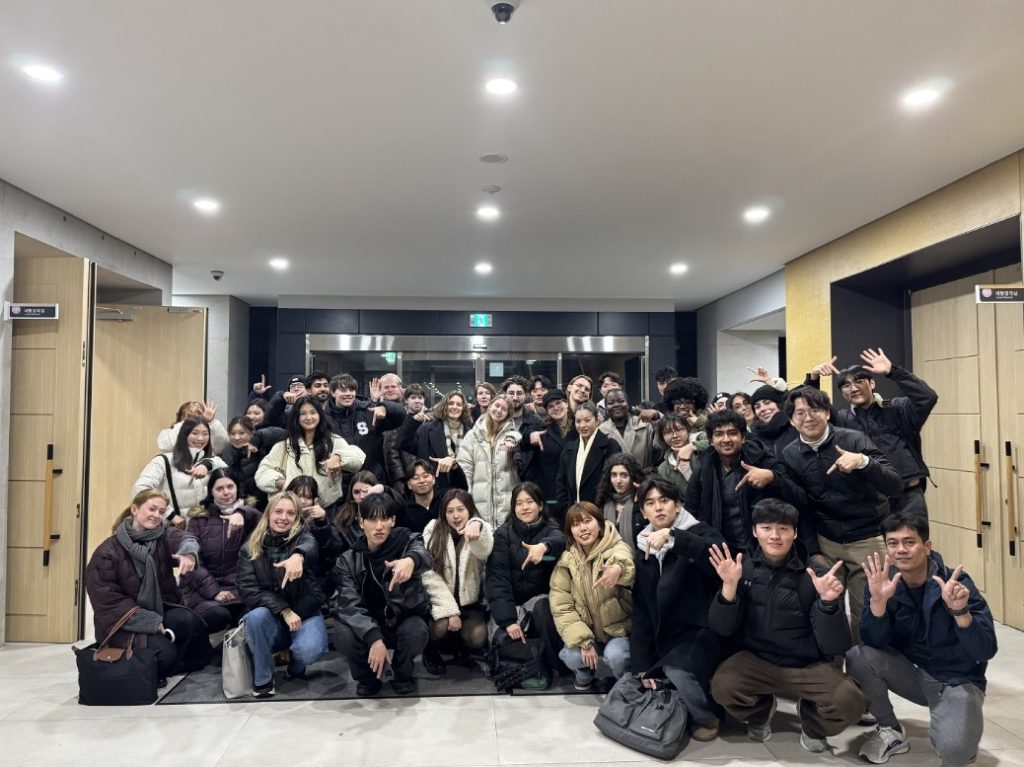
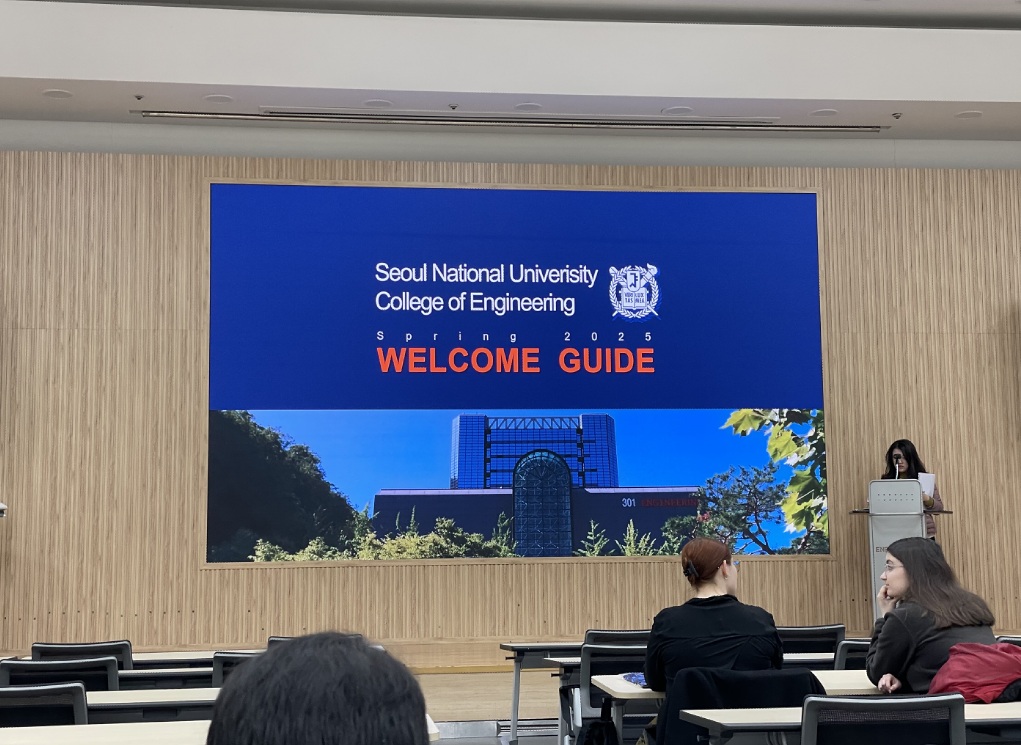
2) Campus Life
From the beginning, SNU offered a warm welcome. My SNU Buddy mentors, Jeewon Park and Hana Kim, helped me settle in—sharing meals, singing karaoke, and capturing fun memories at PHOTOGRAY studio. Their support made my transition smooth and enjoyable.
In my first week, I attended four key orientations that eased my adjustment:
Office of International Affairs (OIA) Orientation
Offered a detailed overview of academic processes, visa and registration steps, campus services, and tools like the mySNU app and eTL platform—along with a helpful “On Arrival Checklist” covering dorm check-in, banking, mobile setup, and health insurance.
College of Engineering (CoE) Orientation
Explained academic systems, grading, and student support services—highlighting free-access lounges and community events like the Han River Picnic and Blue House Tour.
Gwanaksa Dormitory Orientation
Provided essential guidance on dorm rules, facilities, and maintenance. Living with fellow students taught me the subtle norms of shared life and made Gwanaksa feel like home.
SNU Buddy Program Orientation
Through games and group chats, Korean student volunteers helped us navigate life at SNU—from food spots and apps to cultural tips. Participation in events was flexible (I skipped over 100!).
Campus life throughout the semester was vibrant. I joined concerts, theater shows, the Cosmo Hall planetarium demo, and the Hi Korea Tour. I also participated in SISA’s Language and Cultural Exchange and the Neighbor Love volunteer program—earning civic points while contributing to the community. These experiences made my time at SNU truly enriching, both socially and culturally.
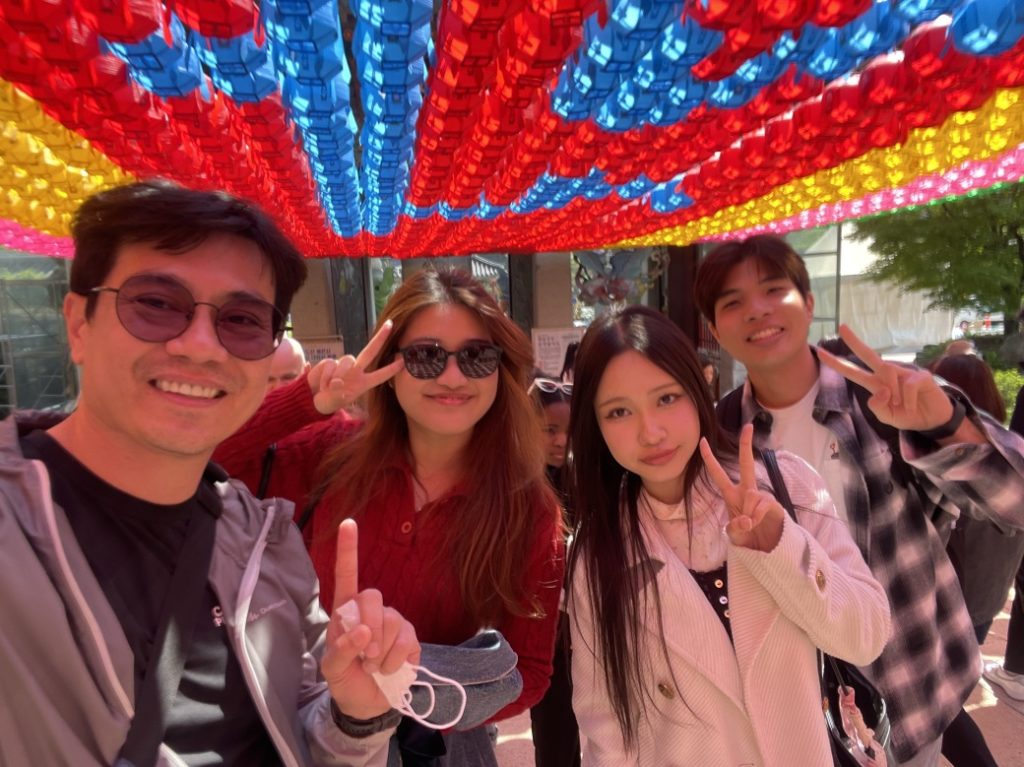
3) Off-Campus Life
Beyond the classroom, I embraced one of my favorite pastimes—hiking. Korea’s stunning landscapes and efficient public transport made it easy to explore. I hiked Gwanaksan, the mountain overlooking SNU, three times, and reached the peaks of Bukhansan in Seoul and Hallasan in Jeju—the highest in the country. Hiking in Korea is a cultural experience, with trails full of cheerful, well-equipped locals. These adventures kept me active and gave me a deeper connection to everyday Korean life.
Another unforgettable aspect of the spring semester was experiencing all four seasons in one term. From March snowfalls to April’s cherry blossoms, May’s shifting weather, and June’s vibrant summer scenes along the Han River, each season brought a unique charm. Even catching a cold became part of the memory! And yes—watching K-dramas is a must. I highly recommend you all to watch the K-drama “When Life Gives You Tangerines”—it will make you fall in love with Korea even more.

Final Thoughts
My exchange at Seoul National University was a truly fulfilling chapter of my academic journey—marked by intellectual growth, cultural immersion, and personal exploration. From the interdisciplinary learning at TEMEP to the friendships formed on campus and the peaceful hikes through nature, every experience added meaning to my time in Korea. The beauty of the changing seasons gave rhythm to my days and memories I’ll carry with me for life.
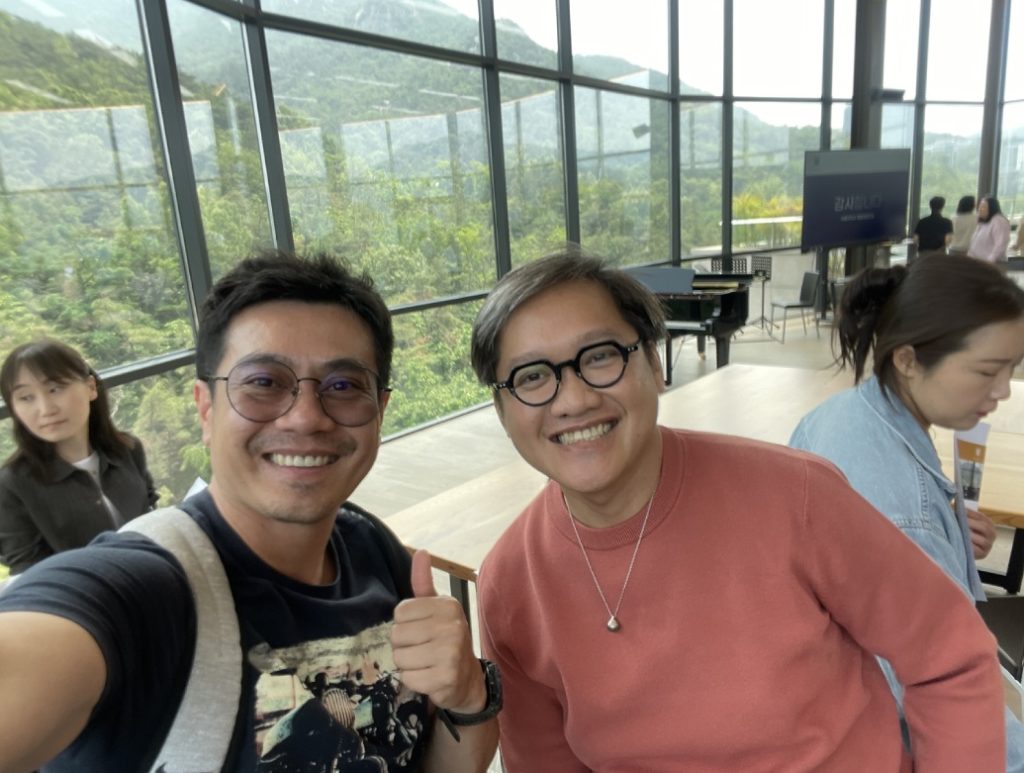
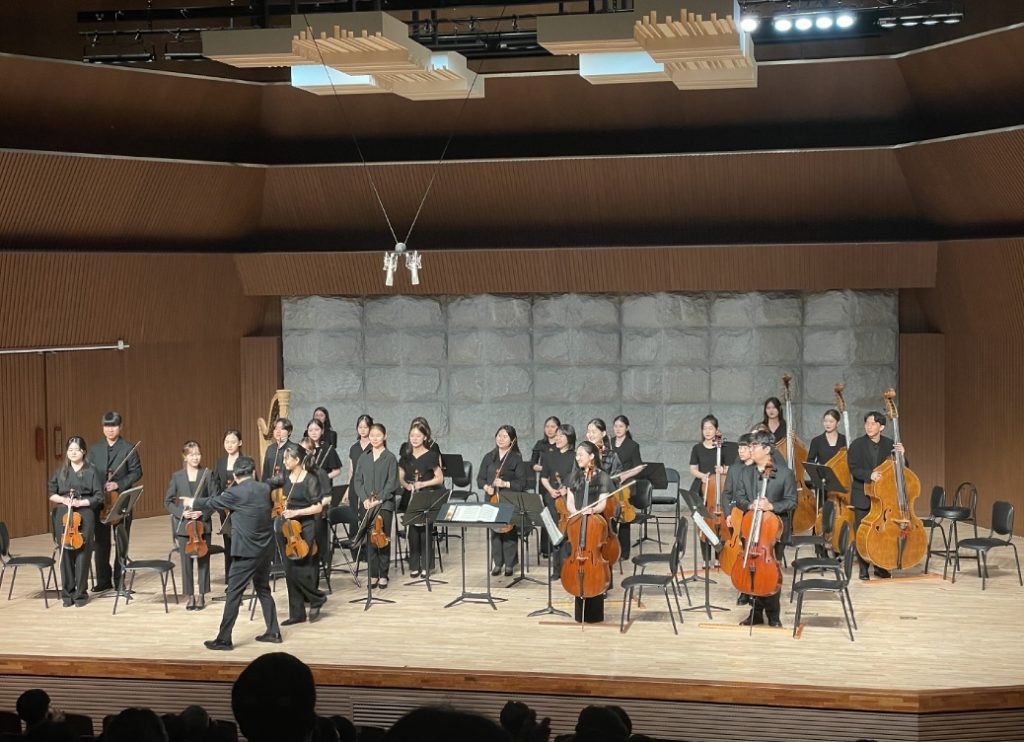
I would like to express my sincere thank you to the School of Environment, Resources and Development (SERD) and International Affairs of the Office of International and Public Affairs (OIPA), for making this exchange opportunity possible. A heartfelt thank you also goes to Nong Baifern—an AIT alumna and former SNU student—whose thoughtful guidance made my transition to Korea remarkably smooth. I am truly grateful.
This exchange was not just an academic milestone—it was a life-enriching experience I will always cherish.
